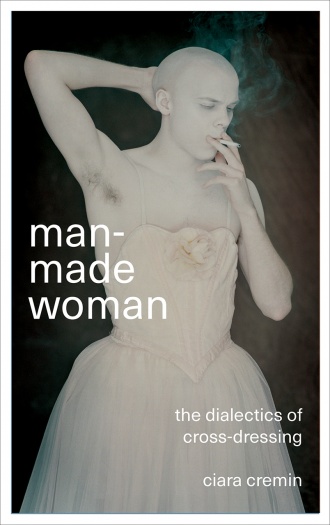This is the last article you can read this month
You can read more article this month
You can read more articles this month
Sorry your limit is up for this month
Reset on:
Please help support the Morning Star by subscribing here
Man-made Woman: The Dialectics of Cross-dressing
by Ciara Cremin
(Pluto Press, £16.99)
FIFTY years after the so-called sexual revolution, Ciara Cremin wants to know why “even a minor deviation from a masculine norm causes both fascination and revulsion.”

It’s a question that has a very personal origin for the author. Man-made Woman charts Cremin’s experience as a cross-dresser who likes to wear women’s and men’s clothing but, rather than being merely a memoir, it analyses gender politics in the context of feminism and sociology, the latter being the subject in which she lectures.
Yet the personal nature of the book means that it has a liberal Western bias and doesn’t consider wider historical or cultural aspects of cross-dressing. These sections are nonetheless some of the most acerbically funny and revealing, while also being fraught with contradiction. Her motivations veer from the personal to the political and she both welcomes and repels attention from others.
There’s also a tension between her feminist analysis and the fact that the only women featured in her narrative are presented superficially, either helping to choose her jewellery or marking her costumes out of 10. The idea that women might not be interested in such matters for reasons other than radical feminism isn’t countenanced.
If Cremin is seemingly unaware of these inherent contradictions, then she openly acknowledges that she wants to dismantle capitalism while being susceptible to the lure of marketing and pop culture — at one point she blames the adverting industry for making her a “Dior addict.”
Yet that distrust of marketing leads to a cursory dismissal of fashion trends in which men adopt female accoutrements that, in other contexts, she espouses. Male vloggers who’ve been sponsored by cosmetic companies, for instance, are deemed newsworthy because they’re “exceptional” rather than being potential outriders for greater mainstream acceptance.
Such scepticism is perhaps healthy when considered in the framework of continued sexism within gendered products.
It’s an area in which Cremin's argument is particularly strong and her awareness of marketing semantics makes her analysis of the man-bag versus handbag and video-game violence particularly incisive.
The author is also persuasive in her call for feminist and LGBT+ groups to work together to end patriarchal capitalism, especially given the political climate in Trump’s America, and in the repeated message that it’s society and not the cross-dresser that needs to change.
Despite its frustrating contrariness, such valid points make the book worthwhile reading.










